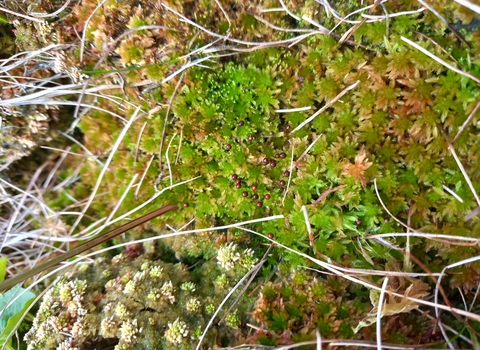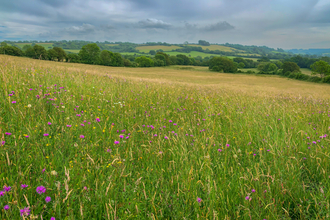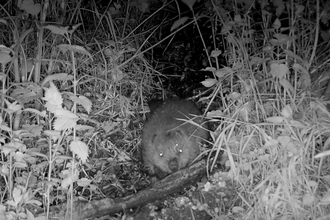Who we are
Dorset Peat Partnership is a subgroup of the Dorset Catchment Partnerships, hosted by Dorset Wildlife Trust who employ the Dorset Peat Project Manager. The key project partners include Natural England, Environment Agency, Forestry England, BCP Council, National Trust, RSPB and one private landowner, including links with the following organisations: Dorset AONB Partnership, Bournemouth University, Dorset Council and the Amphibian and Reptile Conservation Trust.

Dorset Peat Partnership
Why we formed
In December 2021, a bid coordinated by the Dorset Catchment Partnership to Natural England’s Nature for Climate Peatland Discovery Grant scheme was successful in securing funds of nearly £150,000 to use to investigate and unlock barriers to peat restoration in Dorset, where we have over 150 wet heaths and mires.
Due to fragmentation of our habitats caused by land use change for development, forestry, agriculture, farming most of our Dorset Heath sites are highly degraded and in poor condition as they have been impacted by drainage. This has disrupted the natural hydrological system of our wetland habitats making them much drier and less capable of forming peat and extremely vulnerable to the impacts of climate change
The partnership developed restoration plans for 16 sites which had the best feasibility to deliver restoration by 2025 and following a further application for restoration grant funding to the Nature for Climate Peatland Grant Scheme in 2023, they successfully secured one million pounds of funding.
Watch the short video: Plans to restore Dorset’s Precious Peat to hear about Dorset's peatland mires, why they are important and the ambition of the Dorset Peat Partnership to restore these precious habitats.
Restoration sites 2023 - 2025
The Dorset Peat Partnership have summarised all of their sites into this StoryMap.
Here you can find out where our 16 sites are located, and look at the 'before and after' images of works that happened during winter 2023-24. Future works will be taking place from September to March 2025, and we will update our story map as things progress.
Why and how will we restore peat in Dorset?
The key objective of the restoration works will be to rewet the habitats by holding water on the site. The restoration techniques which we are proposing to use are simple low impact techniques:
- Peat dams
- Drain infilling/blocking
- Surface cell bunding (contour peat bunds, coir bunding)
- Permeable timber dams
- Scrub/tree removal, flailing of dominant Purple Moor grass (Molinia)
- Forest smoothing to remove ridge and furrow
- Revegetation (on bare peat with Sphagnum plugs)
The works will be undertaken by experienced wetland contractors who will need to use specialised low ground pressure machinery on our sensitive sites to minimise ground damage.
The Dorset Peat Partnership started working to restore Greenlands and Agglestone Mire and Oakers Bog last winter (December 2023 - February 2024). In the video below, the Dorset Peat partners share an update on their work and the process of restoring peat.
Dorset Peat Partnership video (https://www.youtube.com/watch?v=W7yPTvVNIyA)
Dorset Peat Partnership's work at Greenlands & Agglestone Mire and Oakers Bog
Why are Dorset's peatlands so important?
Dorset's peatlands are a mosaic of rich and diverse wetland habitats, bogs, mires and fen spread across our lowland heath habitats. They are internationally recognised for their ecological significance which include Sites of Special Scientific Interest (SSSI’s), Special Protection Areas (SPA’s), RAMSAR and National Nature Reserve (NNR) status. These landscapes are homes to migratory birds, rare damselflies, amphibians and reptiles, special carnivorous plants like the sundew and insects like the raft spider who rely on the condition of these wet mire heath habitats to survive.
How can I get involved in the project?
We have monitoring opportunities for volunteers to get involved with specific data collection programmes which need to be conducted throughout the year for:
- Hydrological data collection
- Vegetation surveying
- Fixed point photography
If you would like to support the Dorset Peat Partnership, please email the Dorset Peat Partnership Project Manager at gherve@dorsetwildlifetrust.org.uk





